BY OLUKAYODE THOMAS
For over two decades, a cabal, who has no stake in Nigerian football, other than being government appointees, has used FIFA’s statutes and the threat of ban from international football to manipulate Nigerians while our inept sporting journalists who ordinarily should expose their deceit remain either passive or fight one another for a cut of the spoils.
My mentor and friend, Andrew Jennings, one of the greatest British journalists of this era, would probably shed some tears if he remembers our conversation on that bitterly cold afternoon in Copenhagen, Denmark, over a decade ago.
Then, the Internet and mobile telephone technology was just becoming ubiquitous and an optimistic Jennings believed the new technology would revolutionise investigative sports journalism in Nigeria, nay Africa.
But rather than enhance sports reporting, the new technology seems to have destroyed a hitherto vibrant industry.
Advertisement
Nigeria’s newspapers sports pages, which used to be filled with investigated stories with bylines, are now filled with stories downloaded from the Internet. Sometimes, you could pick a newspaper and the five pages dedicated to sports would be filled with Internet stories. Some intellectual thieves called sports reporters even append their bylines.
In the last five years, there has emerged a new generation of reporters who leave their houses for the office to load stories from the net to fill pages. The closest they ever get to reporting live football matches and other events is to call the organiser’s media officers on their mobile phones or copy and paste their press releases.
Those in the broadcast media are not better; it is the ritual of having two guests with the presenter repeating the same garbage every day. The programmes are bereft of reporting or investigation. Whatever they are told by officials, sportsmen and others are presented as the gospel truth- talk of garbage in, garbage out.
Advertisement
We now have a set of sports reporters, and even editors, who abhor reporting and investigation; they do not have what it takes to be journalists – being inquisitive and discerning, filtering information, investigating facts, asking questions and carrying out objective analysis.
Nothing illustrates the new low that sports journalism has sunk in Nigeria today than the ongoing crisis in football.
Because of sports journalists’ inability to filter information, the cabal that has hijacked our football for over two decades, calling themselves stakeholders, continue to use threats of suspension or ban by FIFA to perpetuate their hegemony and they are having a field day.
Any attempt to reform the football industry, already comatose, is seriously resisted by this cabal, who could rightly be called football locust.
Advertisement
WHO IS A STAKEHOLDER? BETWEEN EUROPE AND AFRICA
FIFA abhors interference in the day-to-day administration of football by anybody or party that is not a stakeholder, but I believe it is the duty of the media to educate the public and FIFA, that the so called ‘stakeholders’ in Nigeria are not stakeholders in the sense of stakeholders in Europe or Asia, rather they are government appointees masquerading as stakeholders.
Contextually, the definition of stakeholder varies from continent to continent. Using Europe and Africa as examples, we would see clearly that government is the major stakeholder in Africa and the people are the major stakeholders in Europe. For example, in Nigeria, the biggest stakeholder and investor in football is the government.
More than 90 per cent of the football clubs in Nigeria are owned by government; majority of the stadia are owned by government; staff of NFF are paid by government; the expenses of the national team are paid by the government; one could go on and on.
Majority of the so-called ‘stakeholders’ in football today, who are complaining about government interference, are government appointees.
Advertisement
They are stakeholders by virtue of their appointments either as states FA chairmen or FA secretary by the state governors or they are managing football clubs owned by state governments.
The NFF presidents in last two decades have no personal investment in football direct or indirectly, other than being government appointees. While government intervention at the state level where they were appointed is good, such intervention at the federal level is unacceptable.
Advertisement
Using England, a country most Nigerians are familiar with, as example, in its football administration, the people, rather than government, are the major stakeholders.
Apart from the Wembly and London 2012 Olympics Stadium, virtually all the stadia in England are privately owned; all the football clubs are owned by individuals or the communities; majority of the funding for the national teams are from sponsorships.
Advertisement
Greg Dyke, the face of English football and chairman of the FA, is not a government appointee. Dyke is a huge investor in football who could rightly take credit for turning the Barclays Premier League into a global brand with television money.
Long before Rupert Murdoch came with his billions of pounds, Dyke, it was, as head of ITV Sport in the 1980s, who offered a £1 million each to five clubs to buy TV rights. He later bought the right for the league for £12 million. He was a director at Manchester United and later non-executive chairman at Brentford, the team he supported as a boy.
Advertisement
One expects our reporters to make these football administrators understand that they are not stakeholders, but appointees of government, and also let FIFA know that their definition of stakeholders in Europe could not apply in Africa, especially, in Nigeria where government is the sole financier of football.
PLAYING ON THE INTELLIGENCE OF NIGERIANS
Nigerians love football, especially the Super Eagles.
Attempts to reform the sector have been restricted by these football locusts called stakeholders. They set propaganda machinery in motion, threatening Nigerians that any attempt to right the wrong in football administration will lead to suspension or outright ban of Nigeria from football.
The likes of Aliko Dangote, who has the passion and financial muscle to become the Dyke of Nigerian football, has been scared away from football administration with threats that his factories will be destroyed should the Eagles lose a match.
YOUTH DEVELOPMENT DEAD
The most laughable is that a FIFA ban will disrupt the development of our players. There is no truth in this. Our participation in youth football has stopped yielding dividend.
Except in the 1980s and 1990s, most of the young men that we paraded in age grade competitions in the last decades have faded away. Save Jon Obi Mikel who is today playing for Chelsea, most of our award winners in age grade are not anywhere near top class.
Our boy, Macauley Chrisantus and Ghana’s Ransford Osei outshone German Toni Kroos and Spanish Bojan Krkić at the FIFA 2007 U-17 World Cup. About seven years later, Kroos has won everything a player can win in European football with Bayern Munich and FIFA World Cup with Germany. Today, he is the engine room of Real Madrid, one of the biggest football clubs in the world. Bojan has played for Barcelona, AS Roma, and he is currently on loan at Stoke City.
After playing for a host of obscure clubs across Europe, Asia and Africa, Chrisantus, who many predicted would be the new Rasheed Yekini, now plays for Turkish club Sivasspor, while Osei is with Asante Kotoko.
Stanley Okoro aka Little Messi was the star of 2009 FIFA U-17 that we hosted. Where is Okoro today? He is currently with PFC Cherno More Varna in the Bulgarian League.
Our national team is probably one of the few in the world without teenagers. England and other countries have young blood like we had in the days of Henry Nwosu, Humphrey Edobor, Waheed Akanni, Stephen Keshi and a host of others.
The truth is, football administrators are just whipping up public sentiment; there is nothing like youth development in Nigeria today.
Charity, they say, begins at home and people ride on the back of their achievements at the local level and then aspire for higher office. If those aspiring to lead our football actually love the game and want to be seen as genuine stakeholders, why don’t they develop the game at their local level where football is practically dead today. We had stakeholders like the owners of Arugo Babes who will assembly school boys and shock established clubs in the FA Cup.
What about Stationary Stores Pokulowo e? That was the era when the darling team of Lagos would assemble school boys at cheap rate and shock high-flying clubs with good money. If today’s stakeholders actually want to be called stakeholders, they must return to the local level and do what is expected of them.
FOOTBALL STAKEHOLDERS ARE ABOVE THE LAW
One of the lies these football locusts have used to scare Nigerians for decades is that football matters don’t go to regular courts, that disputes in football must be resolved by CAF or FIFA, and that Court of Arbitration for Sports (CAS) is the final bus stop.
This is not true.
Sepp Blatter, the president of FIFA, was subjected to Swiss Law in Switzerland where he faced charges for corruption in purely football business. FIFA was fined millions of dollars by an American court in the Visa Card and Master Card fraud deal.
Real Zaragoza, a small football club in the Spanish La Liga, once sued FIFA and CAS and won the case in Swiss Federal Court.
Examples abound on the Internet of cases where players, football clubs, national federations and other stakeholders in the football family sued FIFA, and even CAS, in regular courts and have won or lost the case.
It is shocking that our reporters have allowed this lie to go unchallenged for ages.
The latest is the decision of the same body to disobey the order of Justice Allagoa of the Federal High Court, Jos.
The choice to disobey is nothing but an affront on the judiciary and contempt of court.
Arson has been committed, the signature of FIFA executive secretary forged, money collected from government not accounted for and the attempt to right all these and other wrongs is seen as interference.
GOVERNMENT AND FOOTBALL
In all these, what is government doing to re-position football and use it to solve economic and social problems? With football, the federal government has a drug that can be used to cure Ebola, but it is contented using it to cure headache.
In recent years we have won the Africa Cup of Nations. We have won the FIFA U-17 World Cup. We have won the Women Nation’s Cup. But what has been the impact on the society? What is the impact on the economy? What is the direct impact on football itself?
Thanks to the football locust managing our football, Nigeria is about the only country that is a continental champion, yet still goes cap in hand to government, begging for money to execute its matches and meet other obligations a few months after becoming the African champion. What happened to marketing and sponsorship? Our Premier League, which witnessed some revival when Bolaji Abdullahi was sports minister, is back in coma.
Officiating is terrible, matches are played to an empty stadia, security is inadequate, one could go and on.
Compared to England, a country that has not won anything in many decades, the impact of football on the English economy and social life strains the descriptive power of a single adjective. What will be the state of the economy of Manchester or Liverpool without taxes paid by the city’s clubs like Manchester United, Manchester City, Liverpool and Everton. What about employment? The gambling industry, the support industry that the Premier League has created, such as entertainment, fashion, medical, security and football tourism.
The father of John Terry, Chelsea captain, been arrested several times for drug peddling and his mother for shop lifting. Where would Terry be without football?
Have our leaders ever thought of what would happen to our economy if European football is stopped? The millions of Naira made through viewing centres? Nigerians travelling to China to print all forms of memorabilia and ship them with containers. As at last count, there are 50 newspapers in Lagos devoted to European football and they are thriving.
Has it ever occurred to our leaders that a well-structured Nigerian football league would create millions of jobs, solve many of our social problems and generate millions for government in form of tax?
JOURNALIST GOOD AS LAST BYLINE
Most of today’s sports journalists probably don’t know the power of sports reporting. If they did, they would have realised that without the media, football and sports generally would revert to what it was decades ago, a mere recreational exercise.
Football administrations worldwide realise this, and that is why they call their events ‘media event’ and give them five-star treatments.
Football locust at home realise it; they treat reporters like area boys, the ones that outdo their colleagues with back-biting and gossips are rewarded with foreign trips, school fees for children and payment of house rent when the need arises.
But the latter group is the worse as football administrators or footballers they think are their friends deride them the moment they turn their back, show and forward their text messages to their friends.
For our football to be revived, the media needs to wake up from its slumber and set the right agenda, expose the football locust parading themselves as stakeholders and the naive public must be made to understand that these locusts are using them for personal gain.
I can bet my last naira that if government stops funding football today at all levels, the locusts will abandon the game; and then, genuine stakeholders will arise to run football.
The money government is wasting on football could then be invested in sports like athletics, boxing, tennis, and other sports that corporate Nigeria rarely wants to invest in. For this to happen, the sporting press must do their bit, write award-winning investigative stories. Maybe then, my mentor Jennings’ tears will change to smiles.
1 comments
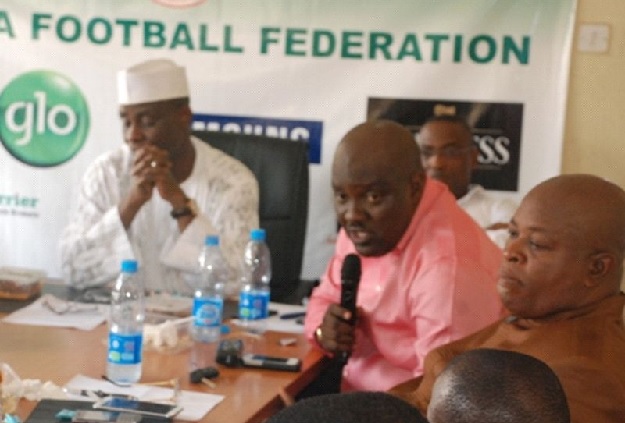
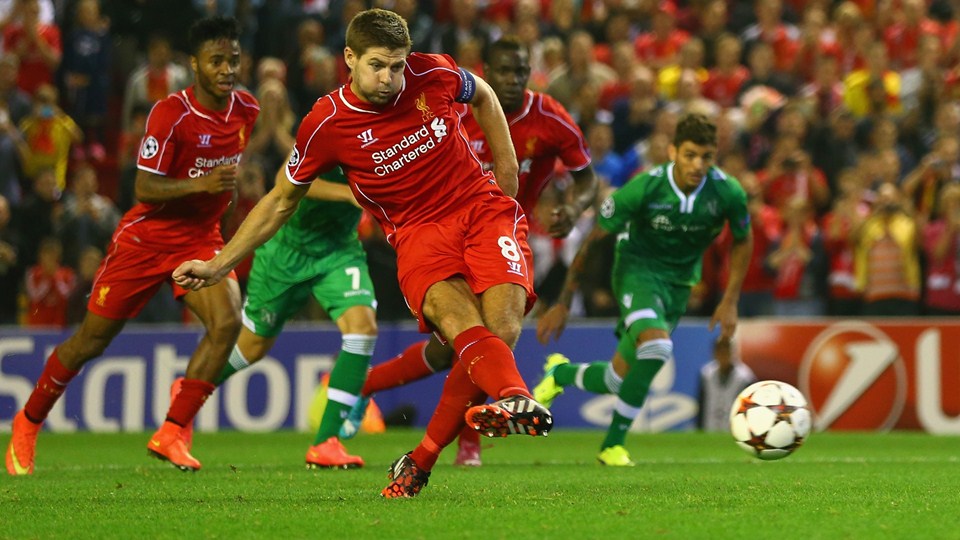

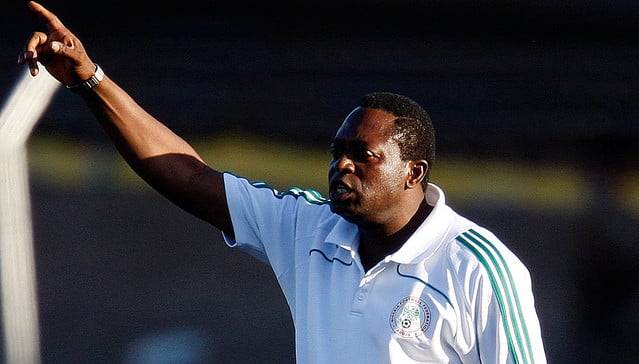
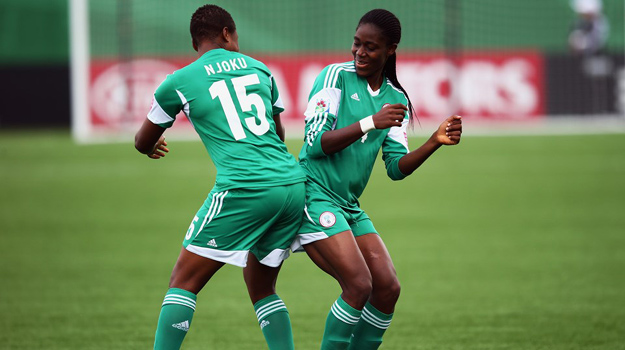
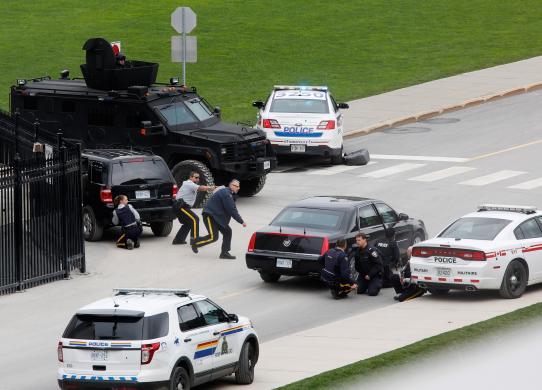
Excellent piece. Very insightful. I really hope we can start to implement some of these European best practices locally. Meanwhile, sports reporters must rise to the challenge